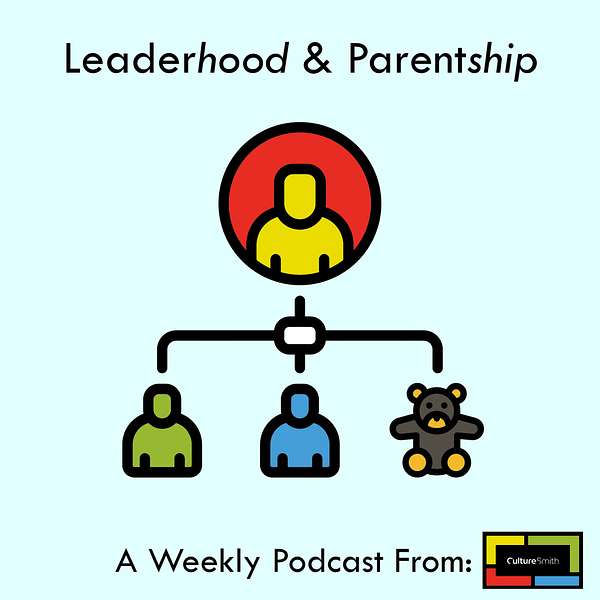
Leaderhood & Parentship
Leaderhood & Parentship is brought to you by CultureSmith Inc. - the industry leader in workplace emotional intelligence (EQ) and leadership training. On each episode, we dive into the most recent and relevant issues facing leaders based on the hundreds of Executive Coaching calls we facilitate each month. We then shift gears and show how the same evidence-based approaches to issues of EQ in the workplace can applied at home.
Leaderhood & Parentship
The Science of Communication: Insights for Leaders in a Digital Age
#32 - Why does it bother us so much when we aren’t understood? In this episode, we explore the philosophy and science behind effective communication. Shane discusses how his background in philosophy informs CultureSmith’s work, why understanding communication is crucial for leaders, and how our Cognitive Colour informs how we encode and decode messages. We dive into the sources of miscommunication, why they make us feel so bad, and the importance of adapting communication styles to fit individual team members. Then, we explore the ways non-verbal communication impacts us both in person and digitally. Shane shares insights on using silence, storytelling, and radical candor as tools, and how leaders can navigate complex emotions at home. Finally, we touch on managing emotional states to ensure clear communication both at work and at home.
If you have follow-up questions, you can always reach us at podcast@culturesmithinc.com.
To learn more about today’s topic, visit:
https://www.linkedin.com/in/shanewallaceculturesmith/
https://www.culturesmithinc.com/
Show Notes:
- [00:30] How philosophy ties into the work Shane does.
- [04:45] Why understanding the science of communication is an essential leadership skill.
- [06:30] Where miscommunication comes from.
- [09:30] How we encode and decode differently based on our Cognitive Colour.
- [16:10] Is there one Cognitive Colour that has less miscommunication?
- [17:50] How leaders can adapt their communication style to fit their team.
- [23:50] In today’s busy world, how do we do this without overwhelming our team and ourselves?
- [26:20] Good communication helps leaders foster empathy.
- [29:00] How to communicate clearly using digital mediums.
- [32:30] Optimizing our non-verbal communication.
- [33:40] How to use silence as a powerful communication tool.
- [38:30] Radical candor and its role in the home.
- [43:20] How to navigate the more complex emotions present at home.
- [46:40] How to use storytelling to get your message across.
- [51:00] How can we manage our emotional state to ensure we’re communicating what we intended?
Mentioned in this Episode:
- Subscribe to CultureSmith's Newsletter: https://www.culturesmithinc.com/
- Shane Wallace on LinkedIn: https://www.linkedin.com/in/shanewallaceculturesmith/
- Morgan Berna on LinkedIn: https://www.linkedin.com/in/morgan-berna/